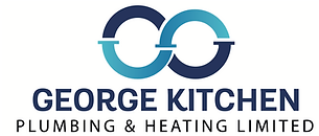Boiler efficiency ratings might sound technical, but they can seriously impact your gas bill, your wallet, and how warm your home feels. With energy costs always rising, understanding your boiler’s efficiency could save you cash and help you choose the best heating setup for your needs.
What Are Boiler Efficiency Ratings in the UK?
Boiler efficiency ratings show how good your boiler is at turning fuel into actual heat. Modern boilers are graded by the ERP system from A (most efficient) to G (least efficient). Most new models are A-rated, meaning they’re over 90% efficient – WINNER!
If you have an older boiler SEDBUK, was also used in the UK to rate boilers but was phased out in 2015 in favour of the ERP ratings.

How Energy Efficient Is My Current Boiler?
The efficiency rating can usually be found on a sticker somewhere on the boiler, usually on the front, back, or bottom. Most modern models have an efficiency rating, but if your boiler is older, it might not.
In that case, find the model number on the boiler and look it up on the PCDB database to check its efficiency.
How to Choose the Most Efficient Boiler
If it’s time to upgrade, you’ll want to choose one that has both a good boiler efficiency rating and is cost-effective.
Here are some factors to consider:
- Price: compare upfront costs across models.
- Installation: check for any additional parts or complexities.
- Running costs: look at yearly fuel usage to get a sense of ongoing costs.
- Maintenance: regular servicing maintains efficiency, so include this in your annual costs.
To get a quote, feel free to get in touch with us today.
Which Type of Boilers is Most Energy Efficient?
Picking an efficient boiler comes down to your home’s needs:
- Gas boilers: good for larger homes with high hot water demands.
- Combi boilers: compact, efficient, and available in gas or electric, perfect for small-to-medium homes.
- Electric boilers: best for flats or smaller spaces – easy to install but pricier to run for larger homes.
How Much Money Could I Save with a More Efficient Boiler?
Energy-efficient boilers can make a noticeable dent in your heating costs. Let’s say for example you’ve got an old boiler with 70% efficiency: for every £1 spent, 30p is wasted on lost energy.
Upgrade to a new model with 90% efficiency, and you’re down to just 10p wasted, saving you 20p per £1 – which really adds up!
Since Boiler Plus regulations set the minimum efficiency at 92%, upgrading is worth it. On average, replacing an old boiler with a new A-rated model could save you anywhere from £115 to £365 per year, depending on your home size and the efficiency of your current boiler.
| ErP Rating of Old Boiler | Efficiency | Detached house | Semi-detached house | Mid-terrace house |
| D | 78 – 82% | £165 | £135 | £115 |
| E | 74 – 78% | £205 | £150 | £130 |
| F | 70-74% | £255 | £170 | £145 |
| G | <70% | £365 | £240 | £205 |
Maximising Your Boiler’s Efficiency
You don’t always need a new boiler to see savings – small steps can improve your current boiler’s efficiency.
Start with an annual service to keep things running smoothly, as well as regularly bleeding radiators to prevent air pockets.
Installing a smart thermostat also allows you to better control your heating, reducing unnecessary use.
Insulating pipes and your hot water tank can further help retain heat, lowering the load on your boiler and cutting down on gas bills.
For more energy-saving tips, check out our blog: 7 Ways to Save Money on Heating and Reduce Your Gas Bill
Final Thoughts
Investing in a high-efficiency boiler, or taking simple steps to improve your current setup, can make a noticeable difference in your gas bills and carbon footprint.
When you choose an A-rated boiler and maintain it properly, you keep your home warm without wasting energy, meaning you save money.
For expert advice on upgrading or servicing your boiler, get in touch with George Kitchen Plumbing & Heating!

